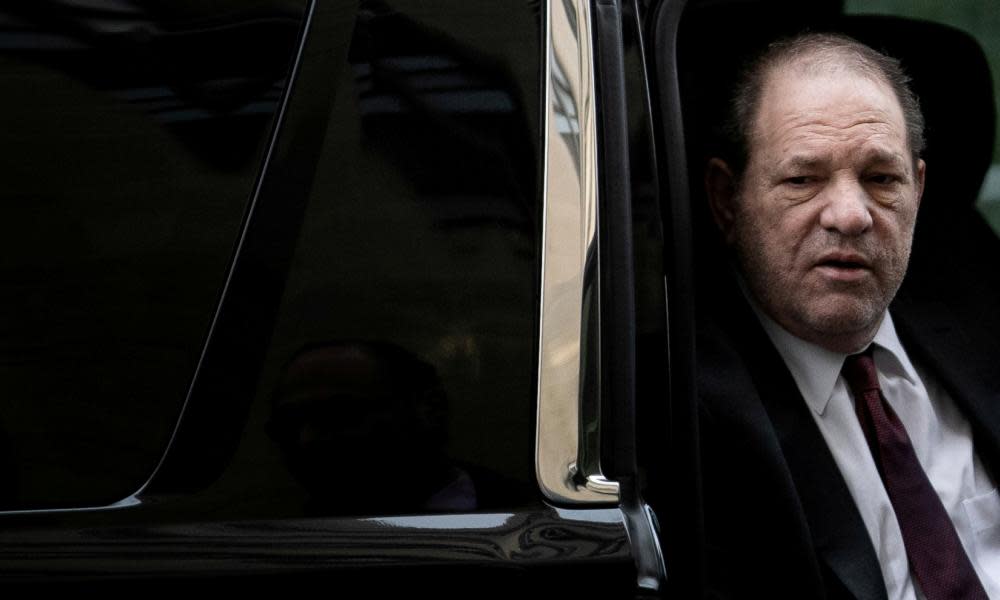Harvey Weinstein: judge rejects $19m settlement with some accusers

A $19m settlement between Harvey Weinstein and some of his accusers was rejected on Tuesday by a federal judge.
The US district judge Alvin Hellerstein in Manhattan said the convicted Weinstein’s accusers in the proposed class-action settlement were too varied to be grouped together.
Lawyers for several women who had opposed the deal praised what they described as Hellerstein’s swift rejection of a one-sided proposal.
A spokesman for Weinstein did not immediately comment. A lawyer for his companies declined comment.
A spokesperson for the New York attorney general, Letitia James, who announced the tentative agreement on 30 June, said her office was reviewing the decision and determining its next steps.
“Our office has been fighting tirelessly to provide these brave women with the justice they are owed and will continue to do so,” Morgan Rubin said in a written statement.
The deal to settle lawsuits brought by James and a Chicago lawyer on behalf of multiple women would have provided between $7,500 and $750,000 to some women who had accused Weinstein of sexually abusing them.
The 68-year-old former Hollywood producer was convicted earlier this year of rape and sexual assault against two women.
Accusations by dozens of women that were revealed in a detailed expose by the New York Times in 2017 led to the downfall of the movie mogul’s career and lifted the feminist #MeToo campaign into a powerful global movement to hold powerful men accountable for their sexual misconduct, especially in work-related settings, as well as railing against the habit of individuals and companies silencing complainants by pressuring them into signing non-disclosure agreements.
Weinstein was diagnosed in March with the coronavirus just days after he was moved to New York state’s maximum security Wende correctional facility, near Buffalo, to begin serving his 23-year prison sentence.
The New York Times reported on Tuesday that the judge questioned how the money would be allocated and called large legal fees that would be allotted to Weinstein and his former company directors “obnoxious”.
The proposed deal also did not require Weinstein to admit wrongdoing or make any payments to his alleged victims, relying instead on insurance coverage.

 Yahoo News
Yahoo News 
